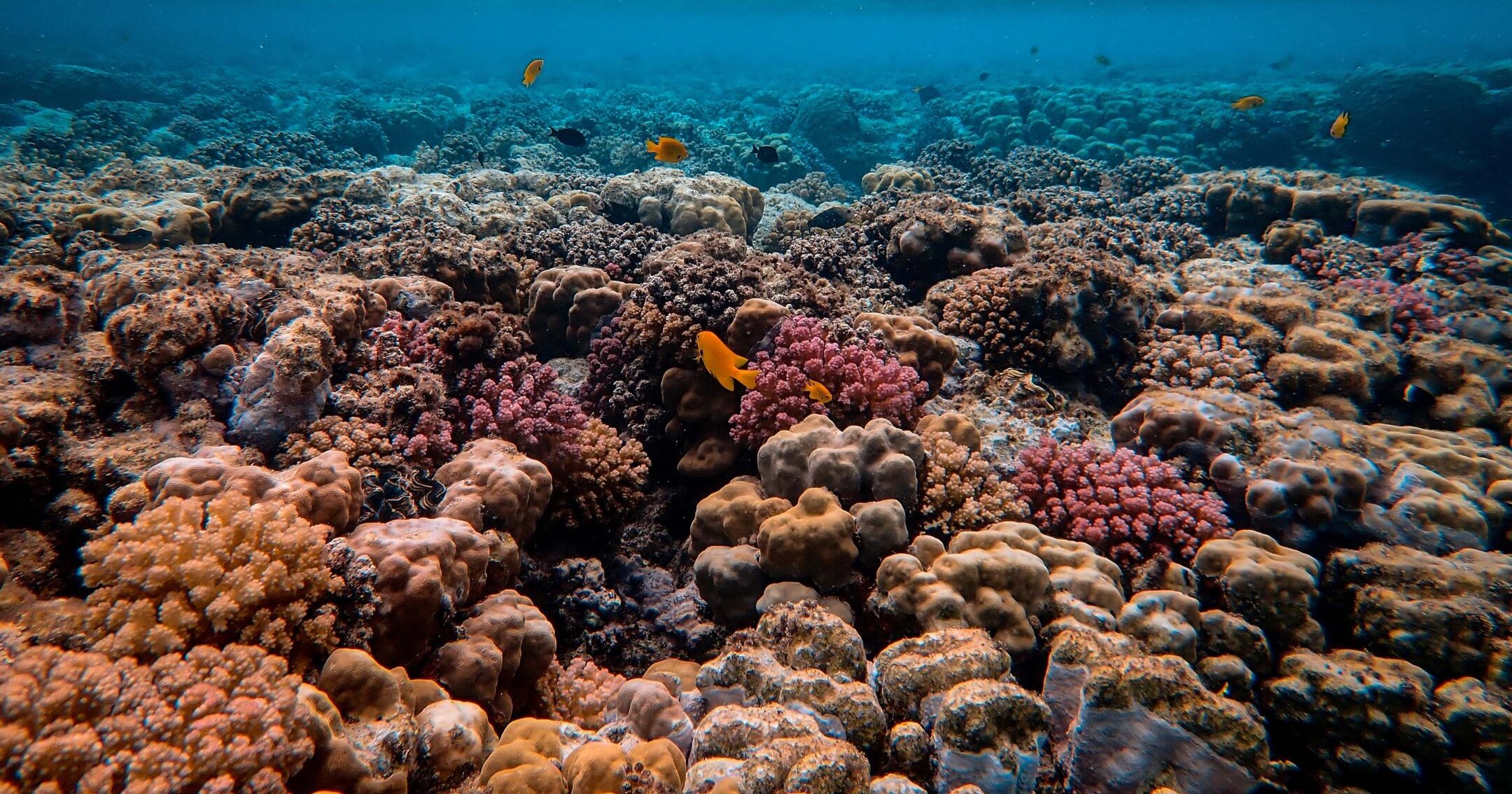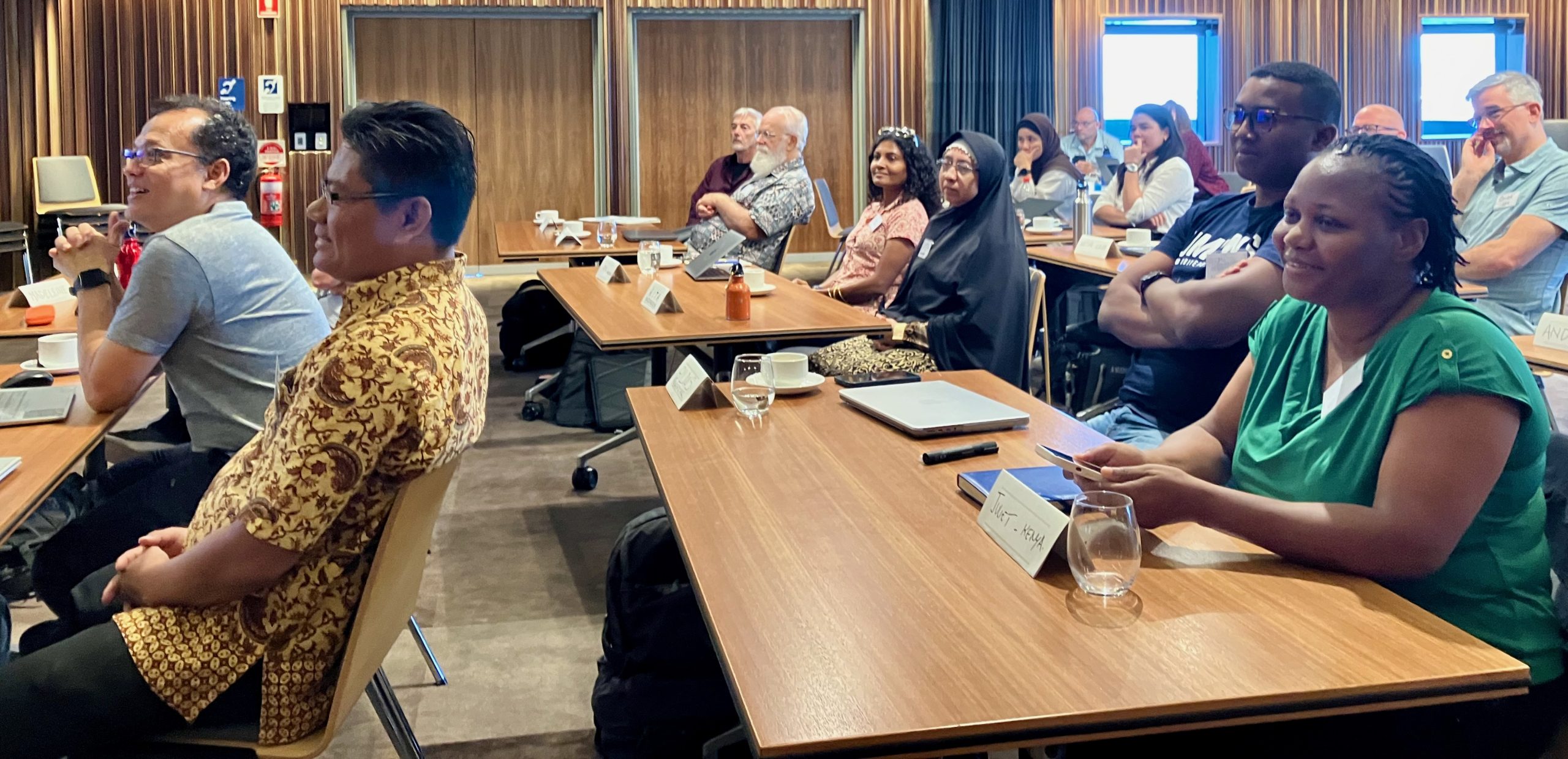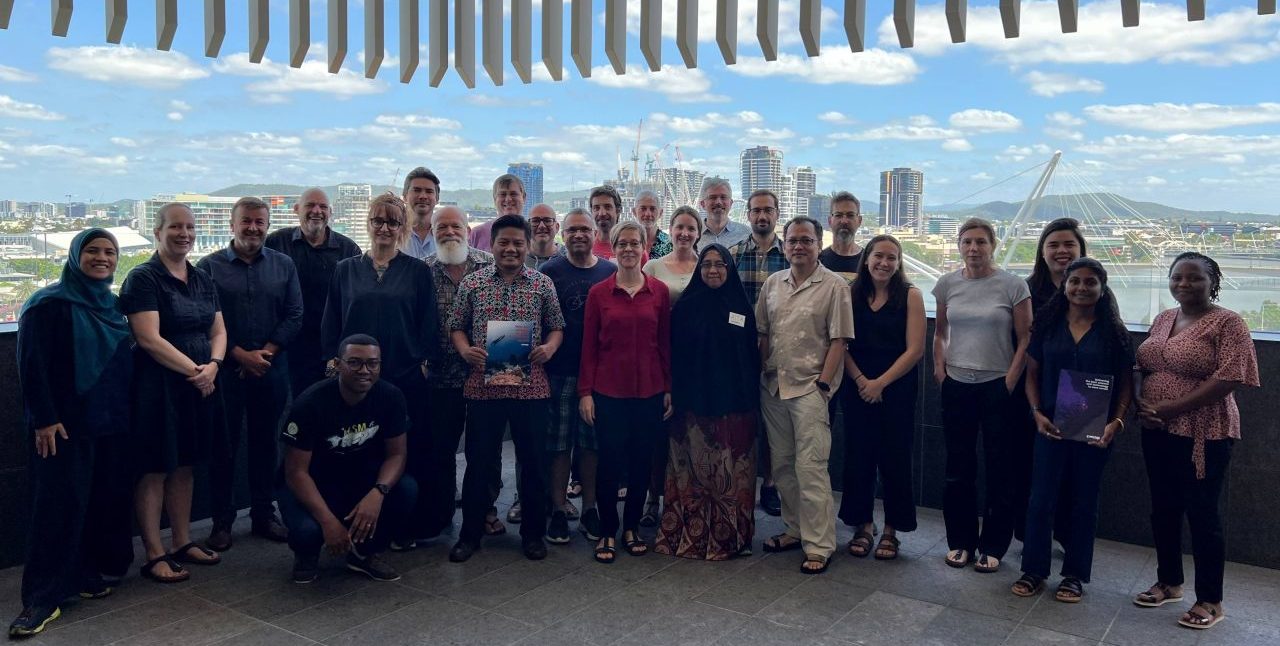Global experts meet to explore the risks of coral reef interventions and how to manage them
Twenty-five coral reef researchers from 11 nations gathered in Brisbane, Australia, on 22-25 January 2024, to attend CORDAP’s workshop on Managing Ecological Risks of Coral Reef Interventions.
The impacts of climate change are taking an increasing toll on coral habitats. Without direct action to help protect and restore them, the world’s remaining coral ecosystems may disappear in the decades to come.
Unfortunately, global action to limit temperature rise is not happening fast enough to stop the damage being done to our reefs. As a result, the approaches used to conserve and restore them have become more innovative and, in many instances, more extreme.
It is critical that, as scientists work to find new ways to save corals, they also ensure the risks of these “coral reef interventions” do not outweigh the benefits. As part of an ongoing series of scoping studies, CORDAP recently brought together experts from around the world to identify research priorities that could improve how the ecological risks of coral reef interventions are managed.

What are the risks of coral reef interventions?
There have been significant advancements in reef intervention techniques in recent years. Some proposed methods involve modifying the environment in which corals live, such as seeding clouds above reefs to create shade or improving local seawater quality. Other methods may seek to strengthen the corals themselves, for example by boosting nutritional regimes or by crossbreeding resilient genotypes.
“Coral reef intervention risks” are the negative impacts that might be caused as a result of the research and development or the deployment of these restoration and adaptation interventions. There are a wide range of potential ecological impacts to consider, including genetic, physiological, invasive, environmental or ecosystem risks. For example, if a coral colony is transported from a hot reef to a cool one to save it, harmful microbes associated with that coral might be transported too. In the cloud-seeding example, such an approach could indeed thwart coral bleaching, but how would it affect other photosynthetic organisms, and would their diminished level of health justify the coral reef rescue?
Researchers need to clearly understand the potential off-target effects of their work and aim to minimize the unintended consequences of interfering with existing ecological processes. These risks could be due to the intervention working as intended, or they may also manifest if the intervention doesn’t work. Both such risk types must then be weighed against the risk of doing nothing at all, in which case endangered corals or highly threatened reefs may otherwise experience further demise.
Gathering expert knowledge on coral reef interventions
The “Managing Ecological Risks of Coral Reef Interventions” workshop aimed to prioritize research efforts to better understand and manage the ecological risks associated with novel interventions. It was developed by CORDAP, together with the Australian Institute of Marine Science (AIMS) and the Centre for Environment, Fisheries and Aquaculture Science (CEFAS).
The three key aims of the workshop were to discuss global and regional perspectives on the issue, to identify gaps, challenges, and opportunities for research around intervention risks, and to draft a roadmap outlining key findings and actions.
By pooling the knowledge of experts from around the world, the workshop could draw upon their practical field experience of interventions. One key element highlighted during discussions was the need to consider local “risk appetite.” This is the relative level of risk that local scientists, government officials and residents are willing to take to save or restore a reef.
Participants discussed whether the benefits of successful interventions outweigh the potentially high costs associated. They also considered how researchers can balance the real or perceived risks and benefits of intervening, versus the risks of not intervening at all. It was determined that improved risk assessment and management will ultimately enhance confidence in projects. It will also increase the potential success of restoration and adaptation projects and programs, while minimizing potential unintended ecological consequences.

Sharing knowledge to deliver better results
Following the event, attendees committed to creating a roadmap that will help researchers reduce existing knowledge gaps around the ecological risks of interventions. The document will also help identify ways of understanding, estimating, and managing these risks in future, and set out suggested practical steps projects can take to ensure responsible innovation and R&D. The roadmap will be made available later this year, and will be accompanied by a short article for peer-reviewed publication.
Inclusion and diversity
CORDAP aimed to ensure that, in addition to being experts within their respective fields, our attendees also represented some of the key regions whose reefs are already hosting interventions or are most likely to in the future.
We are also committed to ensuring our participants are inclusive in terms of gender, and representative of global economic diversity. Of the 11 countries represented by attendees, eight were Lower or Middle Income Countries, and 40% of attendees were female.
Participant affiliations
Aestra Consultants
Australian Institute of Marine Science (AIMS)
University of Guam
Centre for Environment, Fisheries and Aquaculture Science (CEFAS)
Coordinating Body on the Seas of East Asia (COBSEA), UNEP, Philippines
Corals for Conservation, Fiji
Coral Triangle Center, Indonesia
Fishery and Marine Science Institute – Madagascar
Great Barrier Reef Marine Park Authority
Hawai’i Institute of Marine Biology
IPB University, Indonesia
Kenya Marine and Fisheries Research Institute (KMFRI)
Maldives Coral Institute
National Research & Innovation Agency, Indonesia
National Oceanic and Atmospheric Association (NOAA), Coral Reef Conservation Program
Red Sea Reef Foundation
Marine Science Station (MSS)-The University of Jordan
Stanford University
University of Melbourne
University of Miami and Coral Reef Futures Lab
University of Queensland
Wildlife Conservation Society
Find out more about our previous scoping studies, or read the Roadmap on Assisted Evolution which was produced following one of our workshops in 2023.
Coral photo credits: Franceso Ungaro

